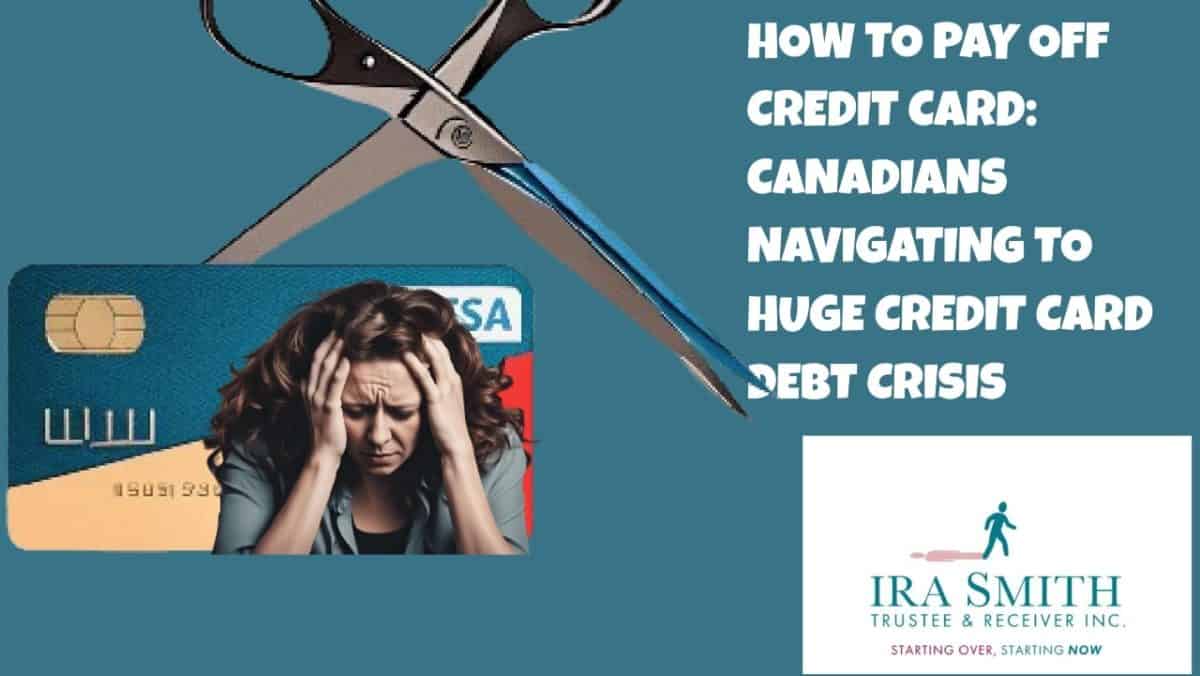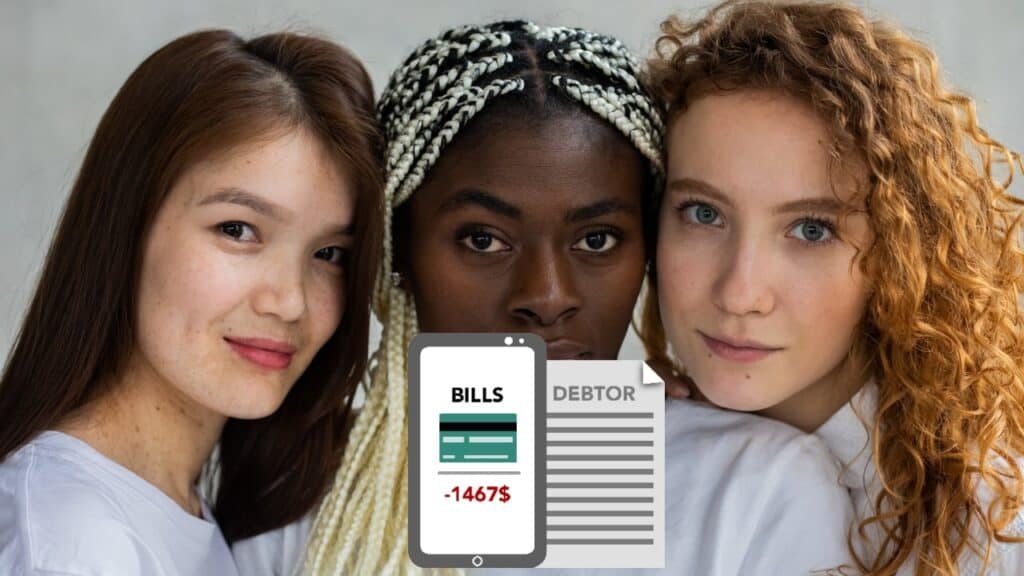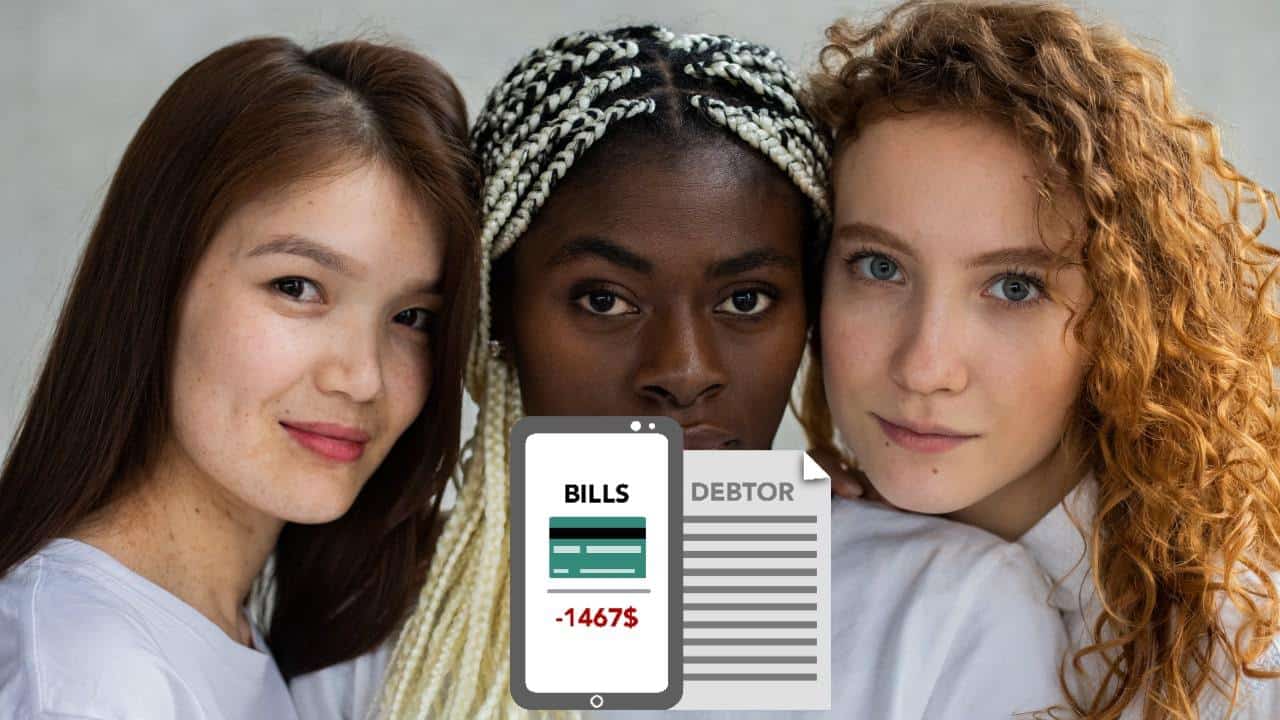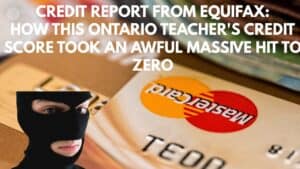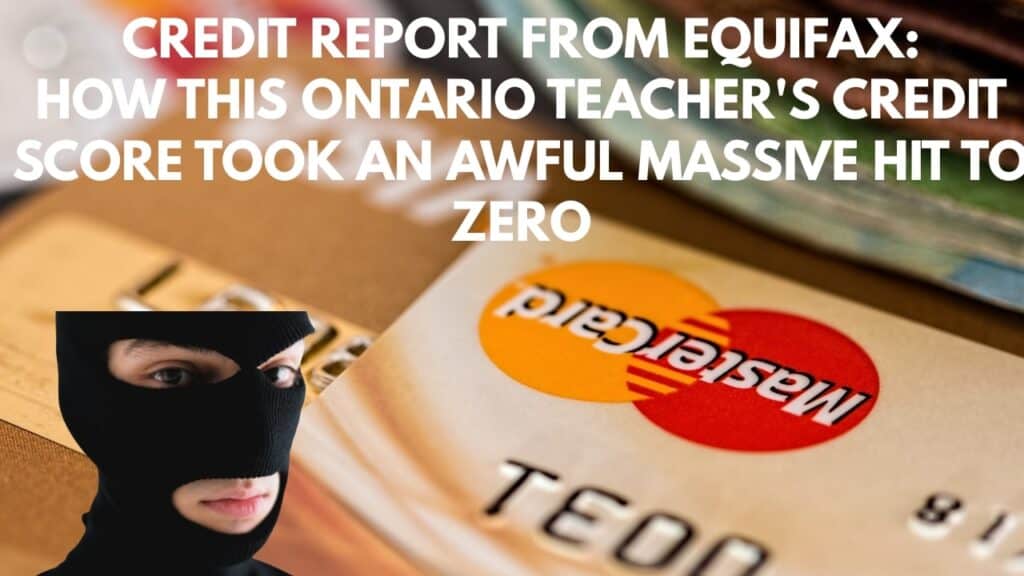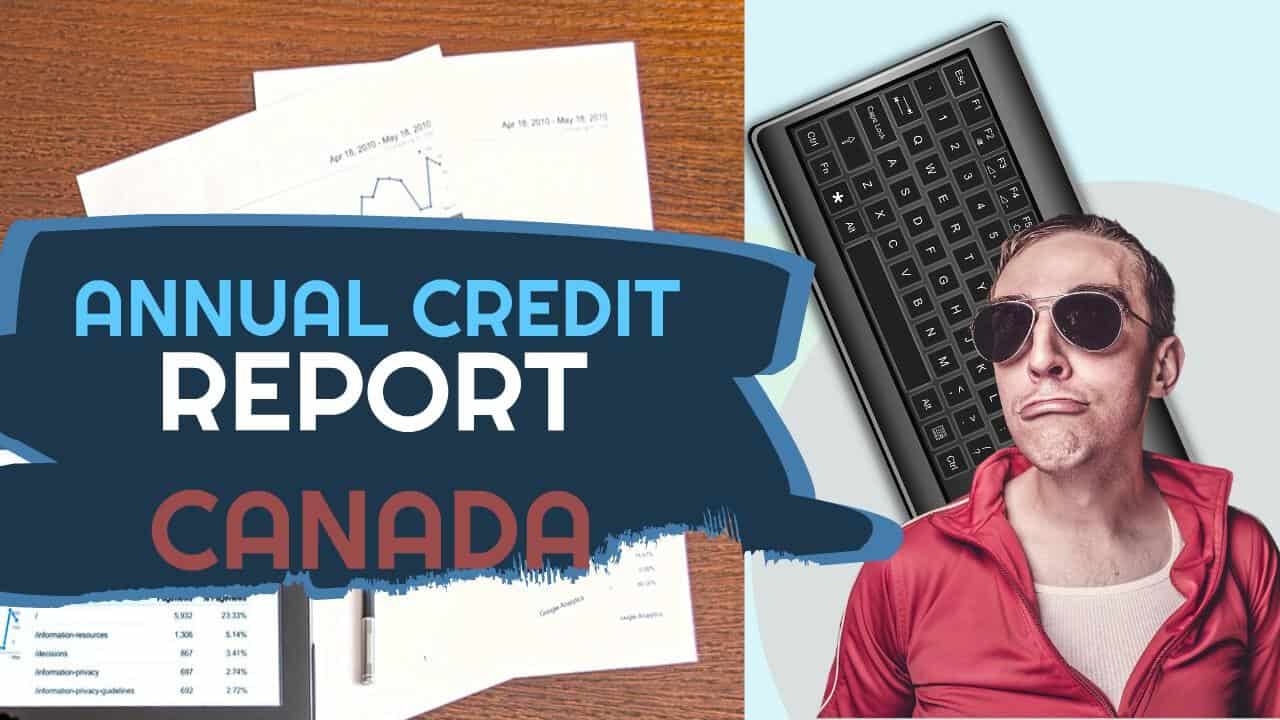How to pay off credit card: Introduction to understanding the credit card debt crisis in Canada
The financial services researchers at TransUnion Canada (TransUnion) have recently reported a concerning trend among Canadians. Many households struggle to keep up with the rising cost of living and higher interest rates, leading to a significant increase in credit card debt. A recent report revealed that more Canadians are only able to make the minimum monthly payments on their credit cards, indicating a growing financial strain and not knowing how to pay off credit card debt.
The data from the TransUnion report paints a stark picture of the challenges faced by Canadian consumers. With the cost of living on the rise and interest rates climbing, individuals are finding it increasingly difficult to manage their credit card payments. The percentage of Canadians making only the minimum monthly payment has surged, showcasing the financial pressure many households are under.
Stagnant household incomes are failing to keep pace with inflation and interest rate hikes, pushing individuals towards relying on credit cards to bridge the financial gap. This shift in consumer behaviour has significant implications for long-term financial stability and underscores the importance of financial literacy and responsible money management.
The total consumer debt in Canada reached a staggering $2.38 trillion in the first quarter, a notable increase from the previous year. This surge in debt is a result of various factors, including the cost-of-living crisis and the influx of newcomers and Gen Z individuals entering the credit market for the first time.
Particularly concerning is the 30% increase in outstanding credit card balances among the Gen Z cohort compared to the previous year. This uptick highlights the challenges younger consumers face in understanding and managing credit responsibly, making them more vulnerable to financial hardships.
Interestingly, millennials currently hold the largest portion of debt in the country, accounting for about 38% of all debt. This demographic’s increased credit needs as they reach significant life milestones, such as homeownership and starting families, contribute to their substantial debt burden.
Despite these challenges, there is a sense of cautious optimism about the resilience of the Canadian consumer base. While there are concerns about missed payments among vulnerable populations, there is a belief that the market will eventually stabilize. Anticipated interest rate cuts could potentially alleviate some of the financial burdens for households over time.
Managing credit card debt and navigating the complex financial landscape in Canada requires informed decision-making and prudent financial planning. By understanding the factors contributing to the credit card debt crisis and taking proactive steps toward financial health, individuals can work towards achieving greater stability and security in their financial future.
How to pay off credit card: TransUnion Report analyzing the factors leading to credit card debt
Analysis of the percentage of Canadians making minimum monthly payments on credit cards
One striking revelation from the report is the concerning trend of an increasing number of Canadians resorting to making only the minimum monthly payments on their credit cards. The data indicates that the percentage of individuals opting for this minimum payment approach has risen by eight basis points, now standing at 1.3% compared to the previous year.
This trend paints a picture of households grappling with the mounting cost of living and the surge in interest rates, which poses a significant challenge in keeping up with financial obligations. Stagnant household incomes failing to match inflation and interest rate hikes have pushed many towards relying on credit cards to bridge the widening financial gap.
It is crucial to recognize the implications of perpetually making minimum payments on credit cards and not figuring out how to pay off credit card debt. This habit can easily spiral into accumulating debt and destabilizing one’s financial standing over time. Financial literacy and responsible money management are paramount in navigating these tumultuous waters and ensuring long-term financial stability.
Insights into the total consumer debt in Canada and the trends observed
The total consumer debt in Canada, as outlined in the report, amounts to a staggering $2.38 trillion in the first quarter, demonstrating a slight uptick from the previous year. This surge can be attributed to various factors, with the cost-of-living crisis and the influx of newcomers and Gen Z individuals venturing into the credit market for the first time playing significant roles.
Of particular interest is the notable 30% increase in outstanding credit card balances among the Gen Z cohort from the previous year. This points towards a learning curve for younger consumers as they navigate their initial experiences with credit, potentially rendering them more vulnerable to financial hurdles.
Moreover, millennials emerge as the segment with the largest debt share in the country, responsible for about 38% of the total debt. This can be attributed to their evolving credit needs as they reach pivotal life stages such as homeownership, starting families, and acquiring auto loans.
Despite these challenges, there is a glimmer of optimism regarding the resilience of the Canadian consumer base. While concerns loom over missed payments among vulnerable populations, there is a prevailing belief that the market will eventually stabilize. Anticipated interest rate cuts could alleviate some financial burdens gradually, offering hope for households navigating these financially turbulent times.
However, interest rate cuts will have to be significant for Canadians’ non-credit card debt to free up more cash in their budget to put towards credit card debt. Credit card rates of interest charged will always be high no matter where the Bank of Canada sets rates. So interest rate cuts themselves won’t help people figure out how to pay off credit card debt unless it creates a significant lowering of their non-credit card debt payments.
The financial landscape in Canada is intricate and dynamic, requiring individuals to navigate prudently to secure their financial future. With insightful reports such as this, we are equipped with the knowledge to make informed decisions and steer toward a path of financial stability and security.
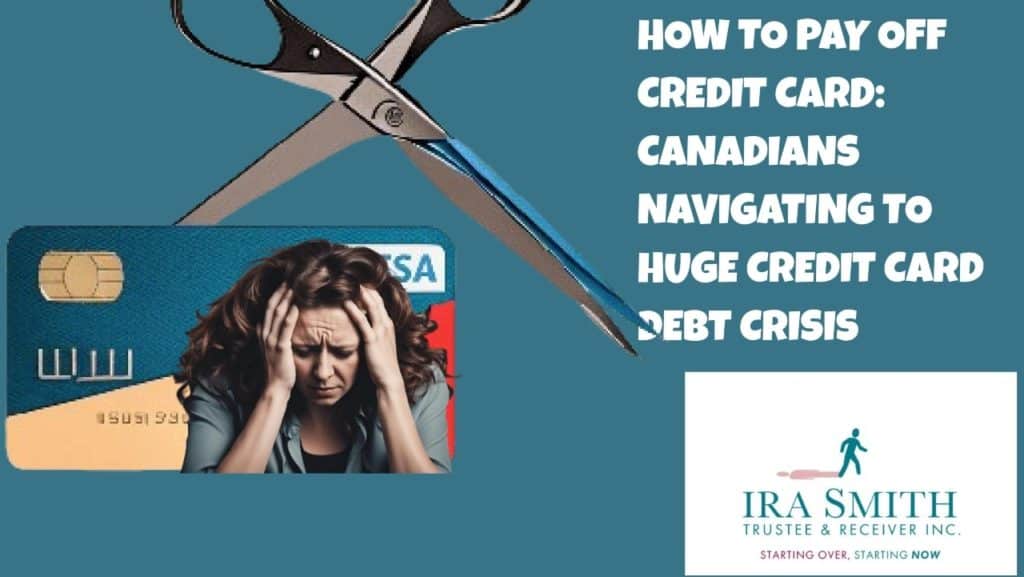
How to pay off credit card: Impact on different generations
Credit card debt trends among generations
- Gen Z Individuals: The report revealed a substantial 30% increase in outstanding credit card balances for the Gen Z cohort compared to the previous year. This surge signifies that younger consumers are just beginning to navigate the world of credit, learning to utilize it responsibly while meeting their monthly obligations. Gen Z’s entry into the credit market for the first time has significantly contributed to this rise in credit card debt.
- Millennials: Currently holding the largest share of debt in the country at about 38%, millennials have distinct credit needs as they progress through significant life stages. As they start families, purchase homes, and take out auto loans, their debt composition has shifted from primarily credit cards to more diverse financial products.
- Other Generations: Beyond Gen Z and millennials, other generations display varying levels of credit card debt influenced by their unique financial behaviours and responsibilities. It is crucial to analyze the reasons behind these differing debt levels to gain a comprehensive understanding of the financial landscape across different age groups.
Exploring reasons behind varying levels of debt
Each generation’s approach to credit card debt and how to pay off credit card debt is a reflection of their financial circumstances, habits, and economic conditions. Factors contributing to the varying levels of debt among different age groups include:
- Financial Literacy: Understanding personal finance and the implications of credit card usage is essential. Generational differences in financial literacy levels may impact how individuals manage their credit card debt.
- Income Disparities: Discrepancies in household incomes across generations can influence debt levels. Higher debt among certain age groups may stem from limited earning potential or challenges in keeping pace with inflation.
- Life Stage Expenses: As individuals progress through life stages, such as buying homes or starting families, their financial needs evolve. These transitions can lead to increased credit card usage and debt accumulation.
- Economic Conditions: External factors like interest rate fluctuations, cost of living changes, and overall economic stability play a significant role in shaping debt trends among different generations.
By examining these underlying reasons, we can gain valuable insights into the diverse approaches to credit card debt management among Gen Z, millennials, and other generations. It’s essential for individuals to be mindful of their financial decisions, seek financial education, and proactively address their debt to achieve greater financial stability regardless of their age group.
How to pay off credit card: Importance of credit, financial literacy and financial planning
As a licensed insolvency trustee, I understand the importance of financial literacy in managing all debt, including, how to pay off credit card debt. In any consumer insolvency process, it is mandatory for the person going through either a consumer proposal process or a bankruptcy, to attend two credit counselling sessions with me. Individuals must comprehend the implications of only making minimum payments on their credit cards, as it can lead to accumulating debt, financial instability and never being able to know how to pay off credit card debt that is out of control.
Role of financial literacy in managing credit card debt
- Financial literacy empowers individuals to make informed decisions about credit card usage.
- Understanding interest rates, payment terms, and fees can help in managing credit card debt effectively.
- By improving financial literacy, individuals can avoid falling into the trap of only making minimum payments.
Canadians need to prioritize financial health and seek out resources and support to manage debt effectively. By taking proactive steps to address their financial situation, individuals can work towards achieving greater financial stability and security in the future.
Tips for improving financial literacy
- Educate yourself on financial terms and concepts to make better money decisions.
- Create a budget and track your expenses to understand where your money is going.
- Seek guidance from financial experts or attend financial literacy workshops to enhance your knowledge.
- Avoid unnecessary debt and practice responsible borrowing and spending habits.
- Stay informed about changes in the financial market and adapt your financial strategies accordingly.
By enhancing your financial literacy and making informed financial decisions, you can take control of your credit card debt and secure a more stable financial future. Remember, knowledge is power when it comes to managing your finances effectively.

How to pay off credit card: Strategies for managing how to pay off credit card debt
I have witnessed the challenges that many Canadians face when it comes to how to pay off credit card debt. It’s essential to address this issue effectively to ensure financial stability and security for the future.
One of the key strategies to manage credit card debt is to avoid making only the minimum monthly payments. While it may seem convenient in the short term, it can lead to accumulating debt and financial instability over time. Instead, I recommend paying more than the minimum amount whenever possible to reduce the overall balance.
Furthermore, creating a budget and tracking expenses can help individuals gain a better understanding of their financial situation. By identifying areas where spending can be reduced or eliminated, it becomes easier to allocate more funds toward paying off credit card debt.
Seeking support and resources for debt management is also crucial. Whether it’s through financial counselling services, debt consolidation programs, or online resources, there are various options available to help individuals navigate their debt repayment journey effectively.
Another effective strategy is to prioritize debt repayment by focusing on high-interest credit card balances first. By tackling these debts aggressively, individuals can save money on interest payments and make significant progress towards becoming debt-free.
Lastly, maintaining open communication with creditors can be beneficial. Exploring options such as negotiating lower interest rates or setting up a structured repayment plan can make it more manageable to pay off credit card debt on time.
How to pay off credit card: Navigating the path to financial freedom
For practical tips on how to pay off credit card debt, I invite you to read my January 2021 blog “PAYING DOWN DEBT: MY 7 ESSENTIAL YET EASY HACKS TO BE DEBT FREE“. Here are a few more tips to follow to help keep debt under control.
Establishing healthy spending habits and avoiding excessive debt
Developing sound spending habits and avoiding excessive debt is crucial for maintaining financial stability and ensuring long-term security. This necessitates exercising discipline and making responsible decisions when it comes to managing one’s finances. Prioritizing essential needs over-indulgent desires and crafting a comprehensive budget that aligns with one’s income and expenses are essential steps in this process.
It is imperative to resist the allure of impulsive purchases and diligently establish a savings plan as a safeguard. Additionally, vigilantly monitoring credit card usage and diligently repaying debts on time can effectively prevent the accumulation of burdensome debt, along with its associated interest and fees. By setting achievable financial objectives and adhering to prudent spending practices, individuals can successfully evade the perils of indebtedness and forge a solid foundation for a financially secure future.
Making timely payments and avoiding credit card balances
Ensuring prompt payment and refraining from accumulating credit card balances are essential for upholding a favourable financial standing. As responsible individuals, comprehending the repercussions of delayed payments and excessive credit card balances on our credit score and overall financial well-being is imperative. By making punctual payments, we not only evade penalties and interest charges but also substantiate our dependability and creditworthiness to lenders.
Consequently, this can yield improved credit terms and future opportunities. Equally significant is the avoidance of burdensome credit card balances, as they can detrimentally impact our credit score and trigger a perilous cycle of indebtedness. Through the practice of prudent expenditure and timely payments, we can accomplish financial stability and establish a robust groundwork for our prospective financial aspirations.
Building a strong credit history and improving credit rating
Establishing a robust credit history and enhancing creditworthiness is paramount for individuals striving for financial stability and future financial prospects. An impeccable credit history showcases prudent financial practices, thereby paving the way for diminished interest rates on loans, increased credit limits, and heightened chances of loan approvals.
To construct a formidable credit history, it is imperative to ensure punctual payments, maintain minimal credit card balances, and refrain from excessive account openings. Furthermore, consistently monitoring credit reports and rectifying any inaccuracies or disparities can significantly bolster credit ratings. By adopting proactive measures and adhering to responsible financial management, individuals can forge a solid credit history and elevate their creditworthiness, thereby securing a more promising financial future.

How to pay off credit card FAQs
- What is the best method to pay off credit card debt?
- Determining the optimal method for credit card debt repayment is contingent upon individual preferences and financial circumstances. The debt avalanche strategy prioritizes the repayment of debts with the highest interest rates first, whereas the debt snowball approach involves tackling the smallest debts initially. It is recommended to select the method that aligns with your personal goals and is most feasible for you to accomplish promptly.
- How can I lower my interest rates on credit card debt?
- One effective strategy for reducing interest rates on credit card debt involves consolidating your debt through a lower-interest-rate personal loan. By leveraging this approach, you can potentially minimize interest expenses, accelerate debt repayment, and enhance your financial standing.
- What steps can I take to pay off credit card debt quickly?
- To pay off credit card debt quickly, it’s important to first review your budget and reconsider daily spending habits. Consider packing a lunch instead of buying one each day and reconsider subscriptions that automatically come out of your account each month. Paying off high-interest debt as soon as possible and paying close attention to bill payments to avoid late charges can also help speed up the debt repayment process. Additionally, organizing your debt and choosing a method like the debt avalanche or debt snowball method can help you pay off debt efficiently.
How to pay off credit card: Conclusion
I hope you enjoyed this how to pay off credit card Brandon’s Blog. Do you or your company have too much debt? Are you or your company in need of financial restructuring? The financial restructuring process is complex. The Ira Smith Team understands how to do a complex restructuring. However, more importantly, we understand the needs of the entrepreneur or the person who has too much personal debt.
You are worried because you are facing significant financial challenges. It is not your fault that you are in this situation. You have been only shown the old ways that do not work anymore. The Ira Smith Team uses new modern ways to get you out of your debt troubles while avoiding bankruptcy. We can get you debt relief freedom.
The stress placed upon you is huge. We understand your pain points. We look at your entire situation and devise a strategy that is as unique as you and your problems; financial and emotional. The way we take the load off of your shoulders and devise a plan, we know that we can help you.
We know that people facing financial problems need a realistic lifeline. There is no “one solution fits all” approach with the Ira Smith Team.
That is why we can develop a restructuring process as unique as the financial problems and pain you are facing. If any of this sounds familiar to you and you are serious about finding a solution, contact the Ira Smith Trustee & Receiver Inc. team today.
Call us now for a free consultation. We will get you or your company back on the road to healthy stress-free operations and recover from the pain points in your life, Starting Over, Starting Now.
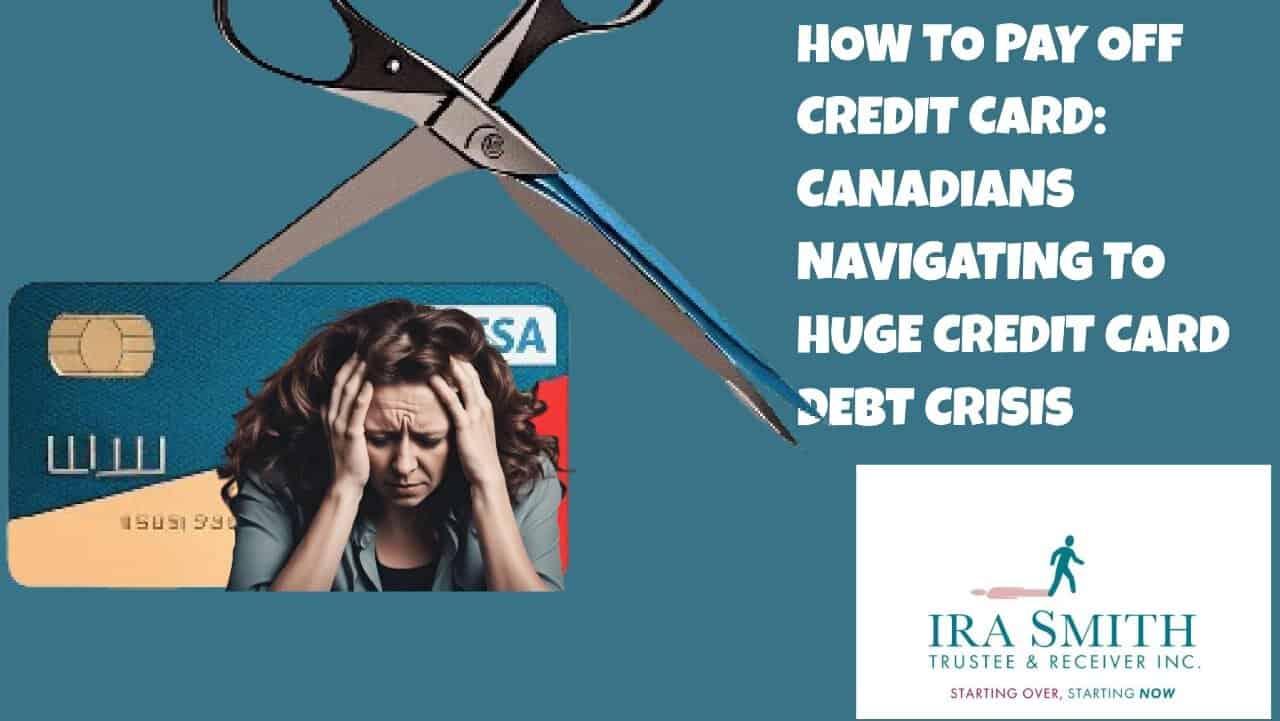
The information provided in this Brandon’s Blog is intended for educational purposes only. It is not intended to constitute legal, financial, or professional advice. Readers are encouraged to seek professional advice regarding their specific situations. The content of this Brandon’s Blog should not be relied upon as a substitute for professional guidance or consultation. The author, Ira Smith Trustee & Receiver Inc. as well as any contributors to this Brandon’s Blog, do not assume any liability for any loss or damage resulting from reliance on the information provided herein.

